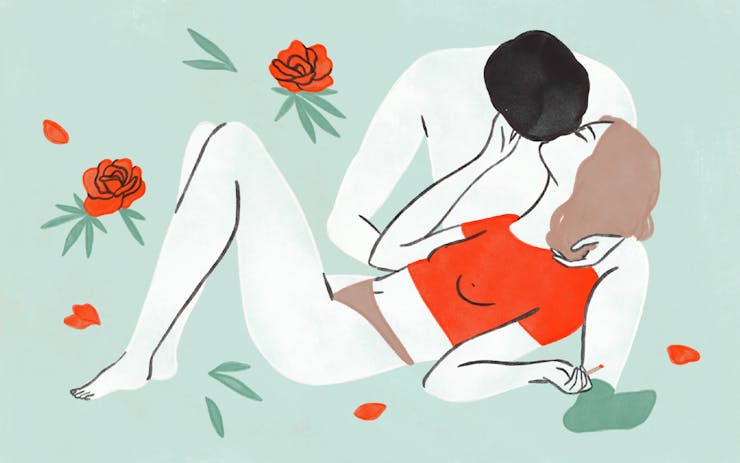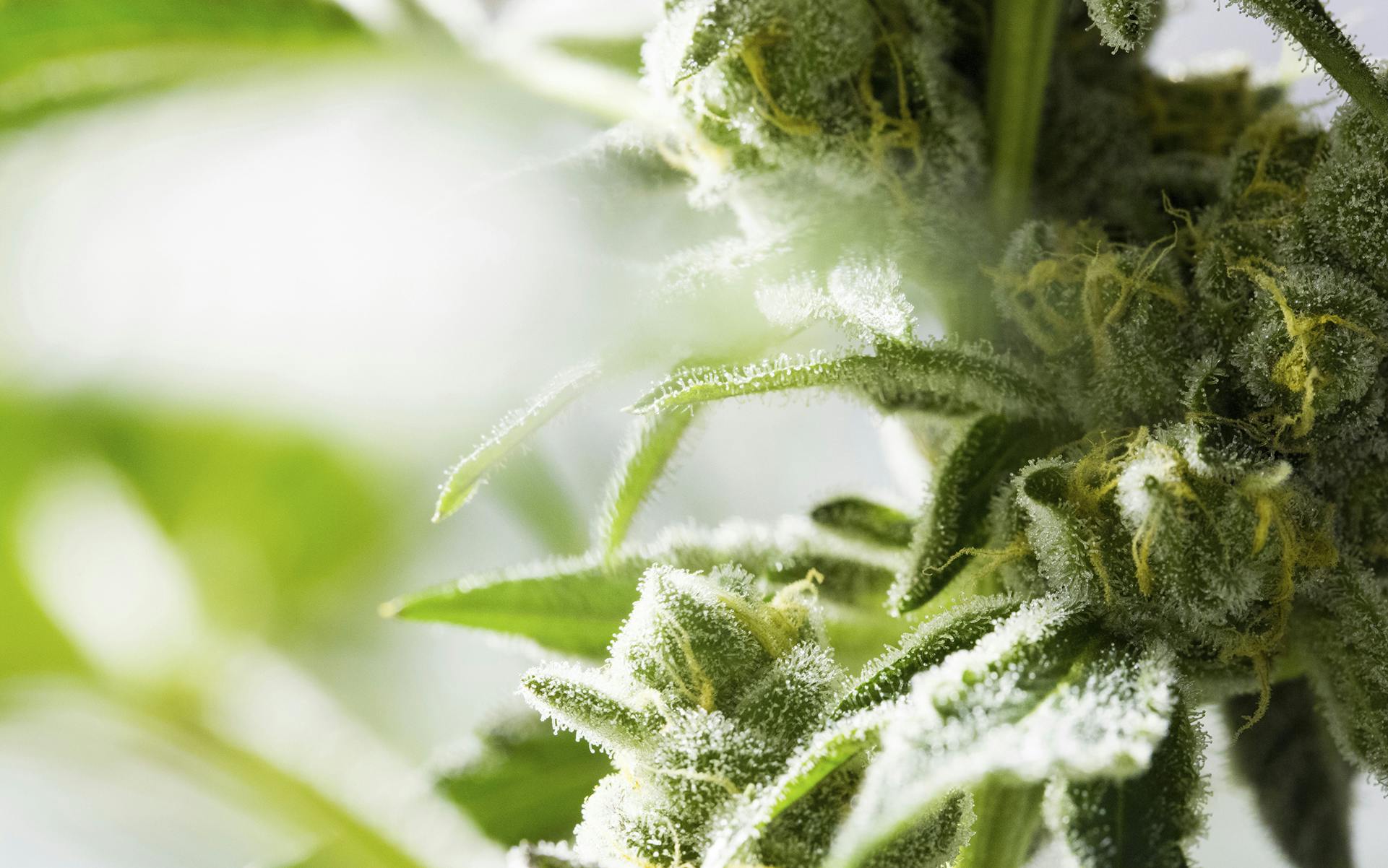Can cannabis bring you to another world, help you discover the truth about love, lift you to a higher place, while also increasing your libido? All signs, and the evidence point to: yes.
The era of prohibition boasts stories of the ‘sexually charged adolescent’, who whilst trying cannabis, is no longer able to satiate an uncontrollable hunger for intercourse. While being highly exaggerated and rooted in prejudices of its time, there is a small grain of truth within this myth.
Cannabis can be a useful tool to heighten sexual experiences and improve sexual functioning in post-menopausal women and men suffering from sexual dysfunction. Although men and women have vastly different reproductive systems, there is common ground: the endocannabinoid system.Sign Up for Leafly Canada's NewsletterOur bodies produce naturally occurring cannabinoids, known as endocannabinoids—“endo” standing for endonegous, meaning inside the body. The cannabinoids found in the cannabis plant are known as cannabinoids—because they come from outside the body but interact with our endocannabinoid system.
Cannabinoids interact with endocannabinoid receptors. There are two main types of receptors: CB1 and CB2. CB1 receptors are mainly found in the brain and are responsible for the ‘psychoactive’ effects of cannabis. CB2 receptors are located throughout our bodies, mainly in our immune system cells and peripheral tissues.
The endocannabinoid system plays a key role in the regulation and maintenance of sexual functioning in both men and women, but cannabis, in particular, can go beyond physical components of intimacy. It has been reported that the use of cannabis can increase tactile sensation and sexual satisfaction while slowing our perception of time. The combination of these factors can help couples relax and revive intimate awareness.
Less Is More
These sexy side effects were shown to be dose-dependent, meaning that the amount of cannabis increased libido, tactile sensation or sexual satisfaction was directly correlated with how much cannabis was consumed. Small doses of cannabis allowed for heightened sexual experiences, while larger doses decreased this effect exponentially.
The key point? At high doses cannabis becomes a sedative, no matter which way you swing it. So consume moderately.
Cannabis is a plant with a few tricks up its sleeve. The two most famous cannabinoids are THC and CBD. THC is responsible for the psychoactive effects that provide the ‘high’ and mind-altering effects of cannabis. It binds to the CB1 receptor and stays mostly in the brain.
CBD, on the other hand, is its sleuth-like counterpart. I mean counterpart in a literal sense. CBD counteracts the psychoactive effects of THC and has a slew of properties of its own. It mainly binds to CB2 receptors. It is known for its anxiolytic properties, meaning it staves off anxiety, but it has demonstrated to be useful for our reproductive parts, too.
Biological Differences
Gentlemen, I have big news. You may have already heard CBD can decrease performance anxiety and improve blood flow, what you may not know, is what it can do down below.
Shop highly rated dispensaries near you
Showing you dispensaries nearCBD has been discovered as a potential therapeutic agent in the treatment of erectile dysfunction. A recent study found high amounts of C1 and CB2 receptors in the corpus cavernosum, an area of the penis whose smooth muscle tone governs whether the whistle sounds. In order for an erection to take place, the corpus cavernosum must relax. It was found that anadamide, our bodies’ endogenous version of THC, helped to relax the smooth muscle in the corpus cavernosum.
Cannabidiol when taken regularly, has been shown to increase our bodies’ natural baseline of anandamide.
Ladies, our reproductive parts are less straightforward. We undergo a symphony of hormonal fluctuations that are highly variable, but whose missed beat can cause severely unpleasant symptoms such as hot flashes, painful sex, and even depression.
The endocannabinoid system plays a key role in the regulation of the female reproductive cycle—giving cannabis the stage as a possible therapeutic agent for symptoms experienced during menopause and endometriosis.
It has been found that in order for ovulation to take place, large amounts of anandamide are produced, while the beginning of menses is met with a sharp decline. Research also shows that women’s bodies have an unusually high concentration of cannabinoid receptors in the uterus and reproductive center.
Symptoms experienced during menopause are associated with surges of luteinizing hormone, which anandamide has shown to modulate.
Reduced amounts of CB1 receptors down below have been correlated to painful sex and pain associated with endometriosis. Cannabinoids such as CBD can help to increase the number of CB1 receptors and anandamide, thus spurring interest in the medical community to investigate its potential as a therapeutic modality.
Does cannabis live up to its mythological reputation as an intense aphrodisiac from the depths of Lilith’s womb? Not quite, but the evidence shows that it has the potential to increase sexual satisfaction for both men and women. Whether it’s a deeper connection with your partner, heightened sensation or physical support you need, cannabis can be at your service.






